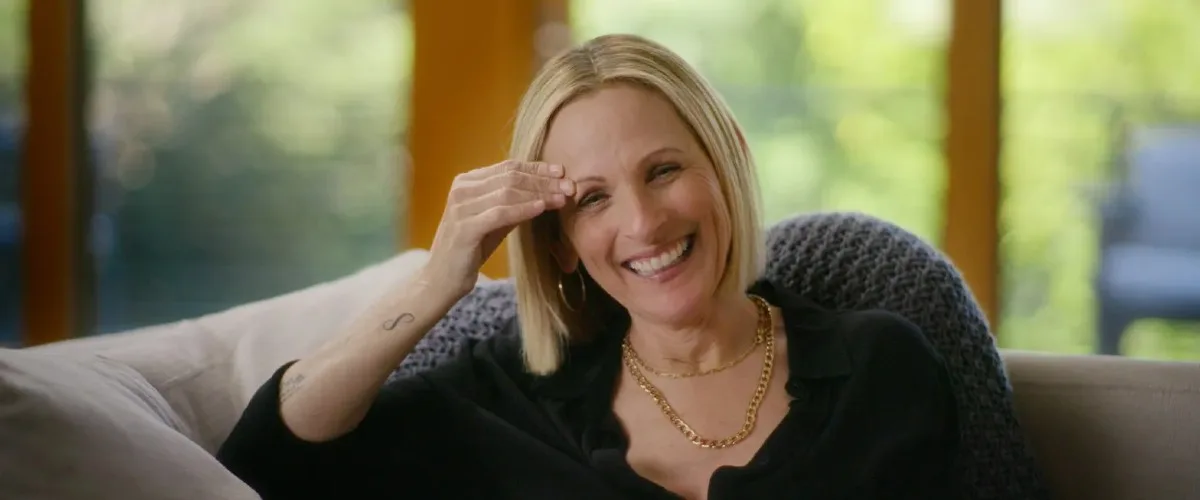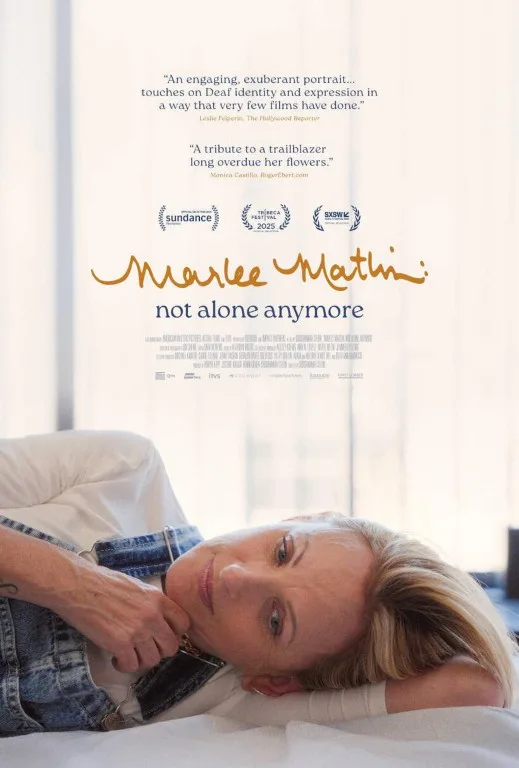A photograph of Marlee Matlin on the set of “Children of a Lesser God” describes her as off in her own “silent world.” At this, she scoffs. Her mind, and therefore, her world, is never silent. For the film, she was the first (read: only) Deaf actor to have received an Academy Award. With this knowledge, Shoshanna Stern’s documentary, “Marlee Matlin: Not Alone Anymore,” begins. And so, the question raised by the film’s subtitle becomes: in what ways is Marlee no longer alone? The 2022 Oscar win of her “CODA” co-star, Troy Kotsur, cannot be the centerpiece of this film’s title, though it is certainly part of it. Stern, herself deaf, crafts an intimate and moving documentary that takes us through the legendary life of Marlee Matlin, uncovering a legacy of advocacy, activism, and perseverance.
From her breakthrough performance in “Children of a Lesser God,” Matlin was thrust into the spotlight not only for her outstanding work but also for the curious eyes of the media, which confronted Deafness in mainstream culture for the first time. Adding to her appeal was her sensationalized relationship with co-star William Hurt, painted like any other Hollywood romance, despite the behind-closed-doors abuse taking place.
Yet, through archival footage and interviews with close friends, we see that the dialogue in the culture was that her role and subsequent award were, in an unkind term, flukes. She was underestimated due to her Deafness; it was perceived as a hindrance to smooth sailing on set, where roles would have to be written specifically for her, rather than entrusting her to embody any role. It was a culture of misunderstanding and blind spots. But Matlin was determined to use her new platform not only to advocate for herself and other deaf actors, but also for the culture. Getting involved in the movements for Deaf President Now! (itself the subject of a strong recent film) and speaking with Congress to push for closed captioning in television and films, Matlin became a figurehead of accessibility and inclusivity.
Stern’s documentary centers on the Deaf perspective, with much of the dialogue being signed and captioned, as well as interviews with hearing individuals being translated from American Sign Language (ASL) to spoken language via earpieces, rather than the expectation of vice versa. The structure of the film lies in scenes of Stern and Matlin signing enthusiastically on a plush couch, empowered to tell this story their way: color-coded captions signal to the hearing, how to interpret for themselves. They discuss the pits and peaks of her history and her future, where she wishes she could revise, and where she plans to correct moving forward.
The film is undeniably Matlin’s story, and her likability and charisma persist throughout the narrative of her biography. But between stories of her upbringing–scarred by low expectations and disappointments toward her Deafness–combined with history lessons on the treatment of deaf children in schools and past portrayals of deafness by the hearing, Matlin and Stern also seek to tell a wide-ranging story about the culture, in part motivated, in other parts buoyed, by the profound power of her testimony.
In a commencement speech, Matlin says: “The handicap of Deafness does not lie in the ear, but in the mind of those who wish to handicap me.” This is the thesis of “Marlee Matlin: Not Alone Anymore.” It’s a tribute and a lesson, not requiring any familiarity with Matlin on the front end, but leaving you queuing up her filmography once it wraps, enamored and empowered by her untold legacy as an actress, artist, and trailblazer.




















